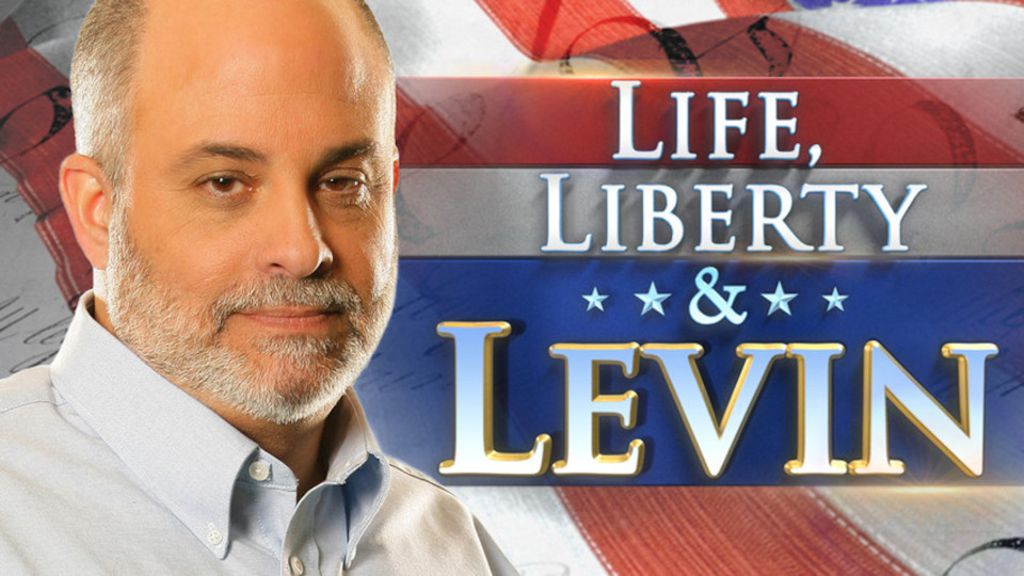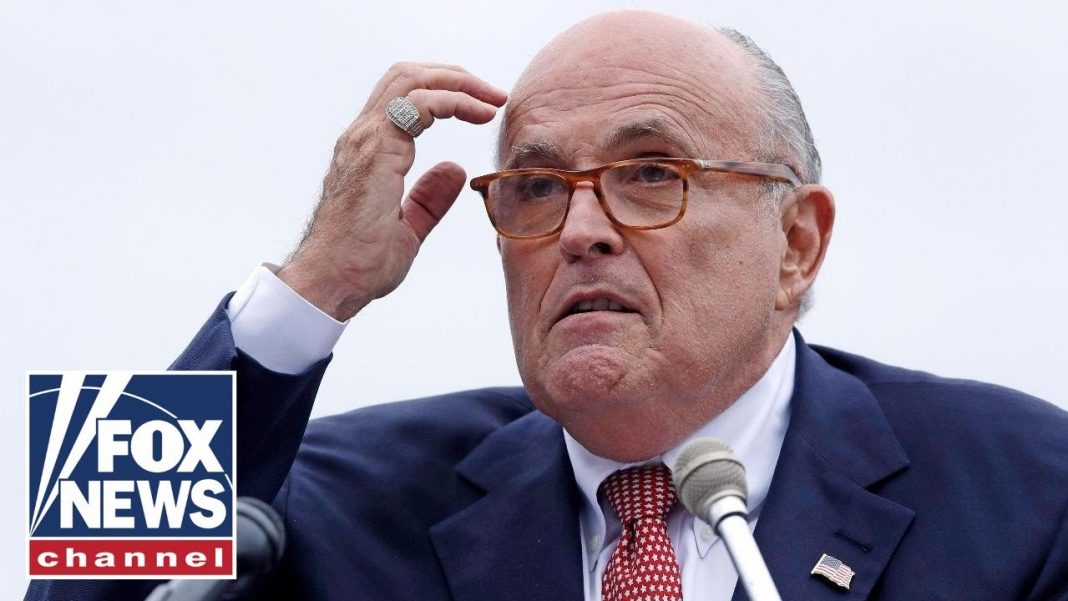Georgetown Law professor Randy Barnett joins Mark Levin to discuss constitutional law through the lens of impeachment.
Mark Levin: Hello America, I’m Mark Levin, this is Life, Liberty and Levin. Welcome back. Professor Randy Barnett, how are you, sir,
Randy Barnett: So good to see you, Mark.
Mark Levin: You are the professor of Legal Theory at the Georgetown University Law School. You also teach Constitutional Law and Contact. Your the Director of The Georgetown Center for the Constitution.
I think we need to do a post-mortem, we need to do a wrap up help with this nation was dragged through the last half you are so impeachment and an impeachment trial and want to break this down and logical steps, because we still hear people saying, and were going to impeachment again, and maybe again after that, we’re going to keep digging his looking and so forth and so on. The impeachment process that took place in the House of Representatives, do you feel it met the standards that the framers had in mind?
Randy Barnett: Absolutely not. Due process is a basic fundamental concept and, the impeachment process in the house lacked all due process, which means that the result of that investigation, the result of that process, gave no one any confidence that they had actually uncovered the truth, and, and given the president his opportunity to give his side of the story in that phase of the of the trial, of that phase of the preceding, and as a result there, it was strictly partisan exercise.
Mark Levin: When we talk about due process, we’re not talking about what’s in the Bill of Rights, because we know this isn’t a criminal case and so forth, but were talking about what traditionally, in a civilized Western society, is a process that allows the facts to come out and the accused to defend him or herself, correct?
Randy Barnett: Right. The due process of law has two components. It’s the due process, of law, and the due process part says, there must be a reliable procedure that actually establishes that somebody actually committed the offence for which they’re charged, and the of law part says, it must be, nobody can be deprived of life liberty or property, without, except by a valid law. It actually has to be a valid law, and just because the legislature tells you something, it doesn’t make it about at law, so it’s both guilt and innocence must be assessed, and a legal standard, an objective legal standard, that you could have been on notice of in advance, that also must have been violated. Those are the two aspects of the due process of law. And it’s a general fundamental principle, that precedes the 5th Amendment, and it precedes the 14th Amendment. Those amendments make reference to a long-standing pre-existing principal.
Mark Levin: The long-standing pre-existing principle is crucial as a bulwark against tyranny.
Randy Barnett: Tyranny and abuse-of-power. Tyranny and abuse-of-power. Any governmental power can be abused. It’s ironic, they charge the president with abusive-of-power. The impeachment power is another power that can be abused.
Mark Levin: Was it abuse?
Randy Barnett: I believe it was. It was abused because it was being used for partisan ends, strictly partisan ends, and I would say electoral ends, I would say the end of influencing an upcoming election. Everything that the president was charged with here is what the house actually did in their, in formulating and impeachment proceeding and you can establish that, as it’s long been established, as your readers, as your viewers know, by all the calls for impeachment for this, for that, for the other thing, from the day after, the day he was inaugurated there’s been calls for impeachment. Will that goes to the Mens rea shall we say, or the good faith of the House.
Mark Levin: Mens rea.
Randy Barnett: Mens rea, good faith of the House in exercising a power that is unquestionably their power, the power to bring charges. The question is was that power abused?
Mark Levin: And you think of was.
Randy Barnett: I do. I think had they given the president the opportunity to participate in all phases of the hearings, not the secret hearings, the earrings that were done in the skiff, in the secure room located in the House. If they had allowed his Council to participate in that, and to call witnesses, both to call witnesses and to cross-examine witnesses. As you know, Mark, is a lawyer, cross-examination is one of the hallmarks of freedom. The ability to call your own witness, that’s the right of confrontation, the right to confront your accusers and also the right to call your own witnesses. Those were not done. The president was not accorded any opportunity to participate until the very last minute, when it had gone from the intelligence committee, where all the work was being done, to the Judiciary Committee, where no work was done, and then he was invited to sit in at that point, his lawyers. But that is not due process and that is not a way you reach a conclusion that’s going to satisfy someone who is not already convinced that the president is guilty of an impeachable offense.
Mark Levin: Do you think this is why they cobbled together these very broad impeachment charges. It appears, anytime the president wanted to defend the office of the president or the executive branch against certain subpoenas for witnesses, like people who advise him on a confidential basis, or certain documents, ah, they would just add that an impeachable offense list. I mean, Adam Schiff basically said that’s what they’re doing. Doesn’t that do a grave damage? We need this balance. Isn’t it possible, as you alluded to, that the legislature could be tyrannical?
Randy Barnett: Absolutely the legislature can abuse power. That is one of the reasons we have judicial review, is to ensure that the legislature has not exceeded its proper powers, as it did, for example, when it passed the Affordable Care Act, pursuant to is Commerce Clause power.
Mark Levin: Which you were intimately involved.
Randy Barnett: I was one of the challenge, persons who formulated the argument for why the individual mandate was unconstitutional, because it exceeded Congress power. And the due process of law gives you the opportunity to go into court and have an independent judge decide, whether, who’s right, the individual citizen or congress. Congress is not above the law, nobody is above the law. In the case of impeachment though it’s not judiciable, it’s not something that the courts would get involved with, other than to evaluate the merits of subpoenas, let’s say, but with respect to what’s an impeachable offense, that is not who checks the House. The institution that checks the House is the Senate, that’s where you get review. It’s Senate review, instead of judicial review, of whether what has happened in the house meets the standard of due process. And that is exactly what I think persuaded a majority of the Senators to vote the way they did, regardless of whether or not the president had misbehaved. Clearly the house at misbehaved, and to create an incentive or a future president, in which the house, anybody’s, whose, no matter which party controls it, can continue to act politically and abused their impeachment power, is something the Senate was charged with stopping, and I think that’s what they did.
Mark Levin: If they had a case of the president misbehaving, it didn’t act like it was a terribly strong case, for the reasons you say. They didn’t want to put it through the test. They didn’t want to allow due process. They didn’t want him to be allowed to challenges evidence. They don’t want to allow his lawyers to be present at critical times. They didn’t want to allow him to present his own witnesses.
Randy Barnett: That’s a very key point. That’s a very key point. If they were so confident in the merit of their case, they should not have been afraid of due process. The fact that they ran from the adversary system in the house indicates that they only felt they would survive, they would get to the finish line, which meant impeachment, to satisfy a political constituency, by denying the White House, denying the President the United States his opportunity to participate in that phase of the impeachment process. It was a tell as we say.
Mark Levin: You know the Andrew Johnson case, he was pretty awful guy.
Randy Barnett: He was quite awful.
Mark Levin: But he shouldn’t have been impeached, at least I don’t think. In this tenure of office they passed, purposely, the so-called Radical Republicans, Lincoln’s assassinated, Civil Wars over, you have reconstruction period. He wasn’t all that much into reconstruction, he was Democrat, he was from the South, but he was supportive of the Union versus the Confederacy and that on of the reasons . . .
Randy Barnett: He was what was called a War Democrat
Mark Levin: A war Democrat, but the House kind of set him up and so did the Senate. That is they pass a law that said that you can’t fire your own cabinet, you have to get our permission, which is absurd, separation of powers, but that was the position. And he vetoed it and then he fired his Secretary of War, who he inherited from Lincoln. And for that reason, among other’s, they impeached him. And there were eleven charges brought. They lost on three in the Senate, and then they took a recess, and then the other eight they dropped. Were the House Democrats trying to set up the president with all these subpoenas?
Randy Barnett: I think they were, I think this, I think it was a setup. Look, getting back to your earlier point, all presidents have misbehaved. I can’t, it’s hard to think of a president who hasn’t misbehaved, and misbehaved in a serious way. Think of FDR and what he did during the Second World War with respect to the Japanese-Americans, or other things that he did, refusing to take Jews who were trying to flee Europe. There’s all kinds of misbehavior and I mean I hate to . . .
Mark Levin: Misusing the IRS, presidents abused the FBI and the CIA, they put journalist imprisoned, they’ve shut down newspaper, Lincoln, Habeas corpus suspended it, he didn’t have the authority to do it. You can go on and on and on.
Randy Barnett: You can go on and on and on. But they have not been charged with impeachable offenses. The remedy for all of that presidential misbehavior has been exposure and the political process. Impeachment is reserved for those situations in which the removal of the president is imperative, it’s imperative. And so far in our history, that hasn’t proven to actually been the case, that, it has never carried the day, except for Nixon, where we didn’t actually put it to the test. But it is, other than Nixon, it has never carry the day that the president needed to be removed. And so this is just consistent with our history of president, presidential misconduct, that is addressed politically, and not addressed by removal. Because removal has the effect of, in some sense, disenfranchising the voters who have put that president in office. And that’s the reason why partisan impeachments are so significant. Because if the motive force for removing the president are all the people that voted against him, then the people who voted for them, him, are not going to credit that. It’s going to undermine the legitimacy of impeachment. And, afraid, I’m afraid Mark, that that is really one of the big downsides, one of the big cost of this, another check on governmental power, impeachment, has now been politicized to the point that people don’t care about impeachment. They should. It should be a weapon that you can threaten presidents with and get them to conform, because it’s such a heavy, serious matter. But if you’re going, if your going to diminish its importance, to this point, than a president is going to go, hey, impeachment, go ahead, what do I care. That’s not a positive development. And all of the checks and balances that we have been built in, when they get in the way of a progressive political agenda, they need to go, the Senate needs to go, the Electoral College needs to go, the impeachment power is going to be used in such a way as he will also be gone. One thing, after, every single structural barrier is going to be politicized to the point where all checks on power are actually going to be undermined.






